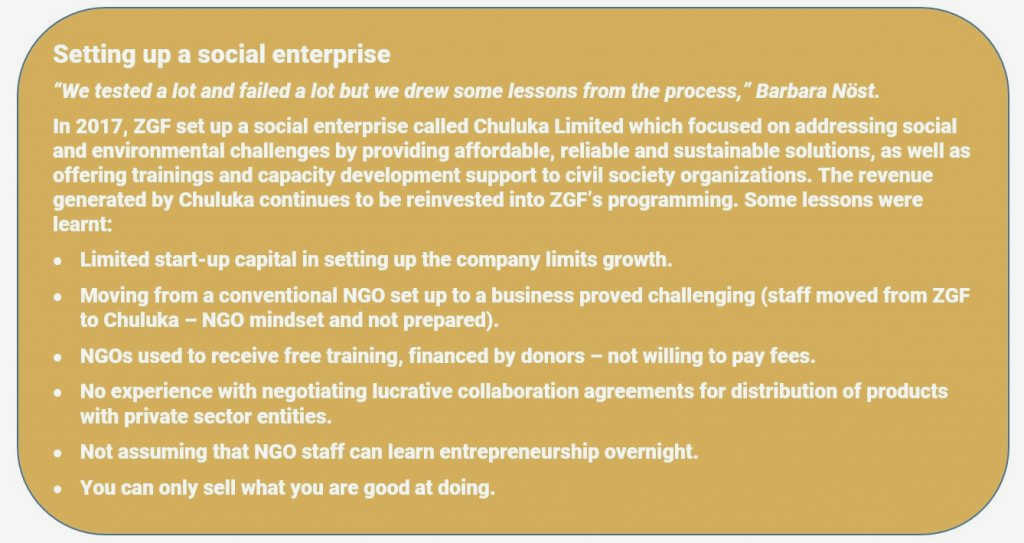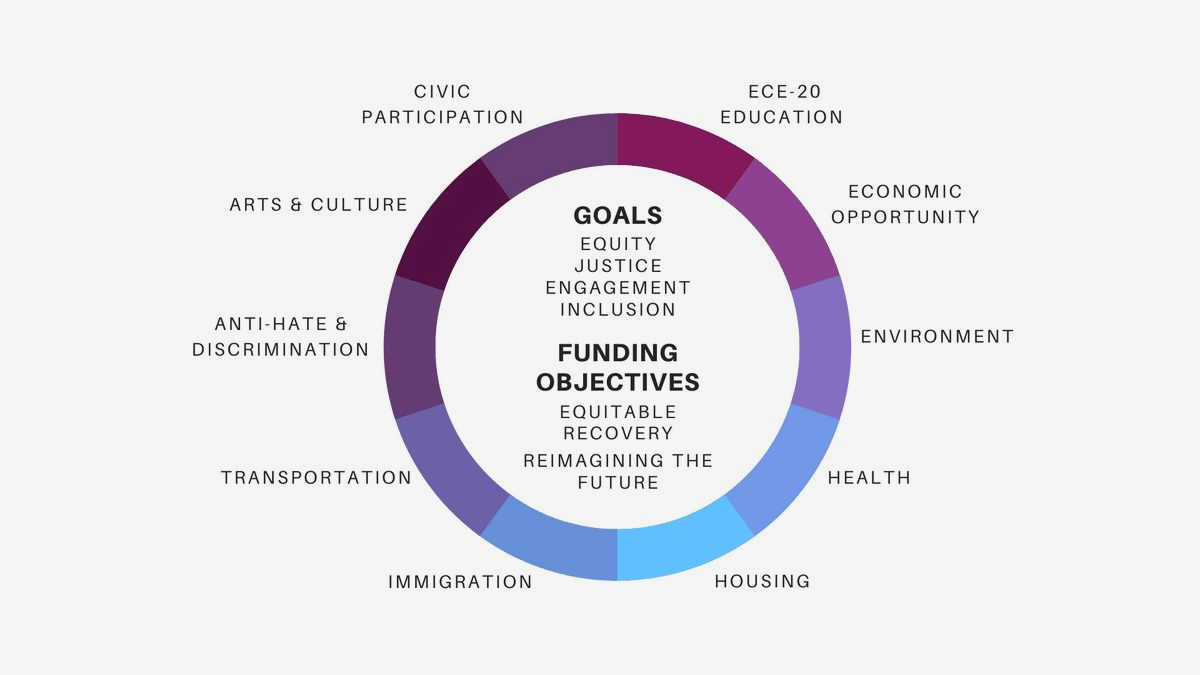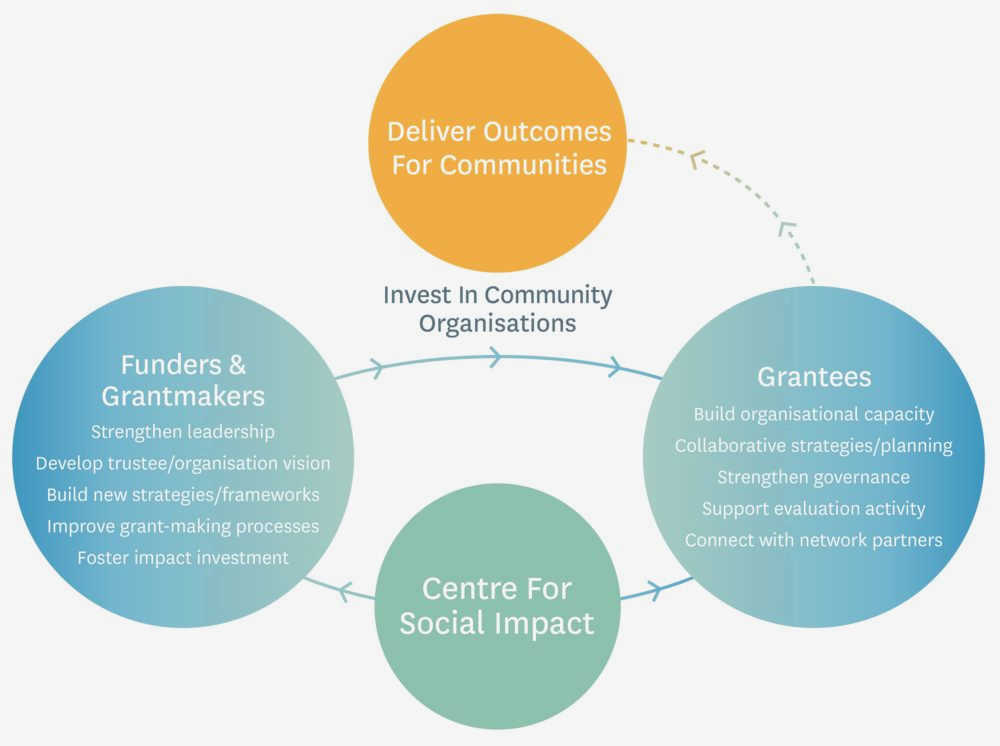Civil society organizations play a crucial role in driving positive change in communities around the world. From tackling poverty and inequality to promoting human rights and environmental sustainability, these organizations address some of the most pressing social issues of our time. However, to effectively carry out their work and create lasting impact, civil society organizations often rely on funding from various sources, including grantmaking.
Grantmaking is a powerful tool that enables funders to support and empower civil society organizations in their mission to create social change. By providing financial assistance, grantmakers can help these organizations implement innovative programs, conduct research, advocate for policy change, and engage with communities. This funding not only provides resources but also validates the important work that civil society organizations do.
However, the potential impact of civil society grantmaking goes beyond the financial support it provides. It can also foster collaboration and knowledge sharing among organizations, leading to greater collective impact. Grantmakers can play a crucial role in connecting organizations, facilitating partnerships, and sharing best practices, thus amplifying the effects of their funding. Additionally, grantmakers often have the opportunity to influence systemic change by supporting initiatives that challenge the root causes of social issues.
Despite the immense potential of civil society grantmaking, there are challenges that need to be addressed to ensure its effectiveness. These include issues of transparency, accountability, and equity in the grantmaking process. Grantmakers need to ensure that their funding decisions are transparent, fair, and aligned with the needs and priorities of the communities they serve. Building strong relationships with civil society organizations and involving them in the decision-making process can help address these challenges and create a more inclusive and impactful grantmaking ecosystem.
The Power of Civil Society Grantmaking
Civil society grantmaking holds immense power in driving positive change and making a meaningful impact in society. By providing financial support, resources, and expertise to organizations and initiatives working towards social good, civil society grantmaking plays a crucial role in addressing some of the most pressing challenges we face today.
One of the key strengths of civil society grantmaking is its ability to amplify the voices of marginalized communities and empower them to address their own needs. Through targeted funding, grantmakers can support grassroots organizations and initiatives that are deeply rooted in local communities. This localized approach ensures that the solutions and interventions are contextually relevant, sustainable, and more likely to lead to lasting change.
A fundamental principle of civil society grantmaking is the recognition and promotion of diversity, equity, and inclusion. By funding a diverse range of organizations and projects, grantmakers can help create a more inclusive and equal society. This not only fosters social cohesion but also enables innovative and creative solutions to emerge from different perspectives and experiences.

Civil society grantmaking also has the power to catalyze collaboration and collective action. By bringing together various stakeholders, including nonprofits, social enterprises, government agencies, and community members, grantmakers can foster collaboration and leverage resources to tackle complex social issues. This collaborative approach not only maximizes the impact of grant funding but also builds strong networks and partnerships that can continue to drive positive change beyond the lifespan of a grant.
Furthermore, civil society grantmaking can help build the capacity and resilience of organizations working towards social change. By providing not only financial support but also technical assistance, mentorship, and training, grantmakers can enable organizations to enhance their effectiveness, expand their reach, and develop sustainable strategies. This investment in capacity-building ensures that organizations are better equipped to navigate challenges, adapt to changing circumstances, and continue their valuable work in the long term.

In conclusion, civil society grantmaking possesses the power to drive positive change, address social challenges, amplify marginalized voices, promote diversity and inclusion, foster collaboration, and build the capacity of organizations. By strategically allocating resources and partnering with organizations working towards social good, grantmakers have the potential to make a significant and lasting impact on societies around the world.
Supporting Social Innovation
Social innovation is a crucial element in addressing the complex challenges faced by societies today. It involves the development and implementation of new ideas, approaches, and solutions to tackle social problems and promote positive change. Grantmaking organizations play a critical role in supporting social innovation by providing funding, resources, and expertise to individuals and organizations that are driving innovative solutions.
One way grantmakers can support social innovation is by fostering collaboration and networking among innovators. By bringing together individuals and organizations with diverse expertise and perspectives, grantmakers can facilitate the exchange of knowledge and ideas, leading to the development of more comprehensive and impactful solutions. Grantmakers can also create platforms and spaces for innovators to connect and learn from each other, fostering a culture of collaboration and collective problem-solving.
Another way grantmakers can support social innovation is by providing risk capital and flexible funding. Many innovative ideas and approaches may not fit into traditional funding models or may be deemed too risky by conventional investors. Grantmakers can fill this gap by providing early-stage funding, allowing innovators to experiment and iterate on their ideas without the fear of failure. Flexible funding also enables innovators to pivot and adapt their approaches as they learn and respond to evolving needs and challenges.
Grantmakers can also play a role in supporting social innovation by providing capacity building and technical assistance to innovators. Social innovation often requires a multidisciplinary approach and may involve navigating complex systems and processes. Grantmakers can offer training, mentoring, and resources to help innovators build their skills and capabilities, enabling them to effectively implement their ideas and scale their impact.
Overall, supporting social innovation requires a holistic and collaborative approach. Grantmakers have the unique opportunity to leverage their resources, expertise, and networks to empower innovators and catalyze positive change. By providing funding, fostering collaboration, offering flexible support, and building capacity, grantmakers can unlock the full potential of social innovation and drive meaningful and sustainable impact in our societies.
Empowering Local Communities
Empowering local communities is crucial for sustainable development and positive social impact. By recognizing the unique needs and assets of each community, civil society grantmaking organizations can play a vital role in supporting local solutions and creating long-term change.
Collaborative Decision-Making: Civil society grantmakers can empower local communities by involving them in the decision-making process. This can be done through participatory approaches such as community consultations, focus groups, and local committees. By including the voices and perspectives of community members, grantmakers can ensure that funding decisions are informed by local knowledge and priorities.
Capacity Building: Grantmakers can also empower local communities by investing in capacity building initiatives. This can involve providing training, technical assistance, and resources to help community organizations and individuals develop the skills and knowledge needed to address local challenges. By strengthening the capacity of local actors, grantmakers can support the sustainability and effectiveness of community-led initiatives.
Networking and Collaboration: Grantmakers can facilitate networking and collaboration among local organizations and individuals. By connecting community leaders, activists, and changemakers, grantmakers can promote cross-sector partnerships and collective action. This not only enhances the impact of individual initiatives but also fosters a sense of ownership and collective responsibility within the community.
Transparency and Accountability: Grantmakers can further empower local communities by ensuring transparency and accountability in their grantmaking processes. This includes providing clear guidelines and criteria for funding, as well as transparent reporting mechanisms. By promoting transparency and accountability, grantmakers can build trust and credibility within the community and foster a culture of responsible governance.
Impact Measurement and Learning: Grantmakers can empower local communities by investing in impact measurement and learning initiatives. By monitoring and evaluating the outcomes and impact of funded projects, grantmakers can provide valuable insights and knowledge that can inform future funding decisions. By sharing this information with local communities, grantmakers can support learning and adaptation, driving continuous improvement and innovation.
Advancing Sustainable Development
The concept of sustainable development is becoming increasingly important in the context of civil society grantmaking. It recognizes the need to balance economic growth, social development, and environmental protection in order to ensure long-term well-being for people and the planet.
Civil society organizations play a crucial role in advancing sustainable development by addressing key challenges such as poverty, inequality, climate change, and environmental degradation. Through their innovative projects and initiatives, these organizations contribute to the achievement of the United Nations Sustainable Development Goals.
Grantmaking can support the advancement of sustainable development by providing financial resources to civil society organizations working on solutions to pressing social and environmental issues. By funding projects that promote renewable energy, sustainable agriculture, clean water and sanitation, and other sustainable practices, funders can help drive positive change and create a more sustainable future.
In addition to funding specific projects, grantmakers can also support capacity building efforts within civil society organizations. This could involve providing resources for training, mentoring, and knowledge-sharing, enabling organizations to strengthen their skills and expertise in areas related to sustainable development.
Furthermore, grantmaking can promote collaboration and partnerships among civil society organizations, government agencies, businesses, and other stakeholders. By facilitating networking and knowledge exchange, funders can foster collective action and enhance the impact of efforts towards sustainable development.
Promoting Equality and Inclusion
Promoting equality and inclusion is a crucial aspect of civil society grantmaking. It involves providing support to projects and initiatives that aim to create a more inclusive and equitable society for all individuals, regardless of their background, gender, race, or abilities.
One way to promote equality and inclusion is by funding programs that focus on education and skills development for marginalized communities. By providing access to quality education and training opportunities, these programs help individuals overcome barriers and empower them to participate fully in society.
Another important aspect of promoting equality and inclusion is supporting initiatives that address systemic discrimination and prejudice. This can include funding organizations that advocate for policy changes, raise awareness, and challenge discriminatory practices in various sectors, such as employment, housing, or healthcare.
In addition to these efforts, civil society grantmaking can also promote equality and inclusion by supporting projects that focus on building inclusive communities. This can involve funding initiatives that facilitate dialogue, promote understanding, and foster social cohesion among diverse groups. By creating spaces for interactions and collaboration, these projects help break down barriers and promote social integration.
Moreover, promoting equality and inclusion also involves addressing the unique needs and challenges faced by marginalized groups. This can include funding programs that provide support and resources for individuals with disabilities, LGBTQ+ communities, or ethnic and religious minorities. By empowering these groups and ensuring their voices are heard, civil society grantmaking helps create a more inclusive society for all.
Overall, promoting equality and inclusion through civil society grantmaking is essential in creating a society that values diversity and ensures equal opportunities for all. By supporting initiatives that tackle discrimination, provide access to education and skills development, foster inclusive communities, and address the needs of marginalized groups, grantmakers can play a significant role in driving positive change and building a more equitable society.
Driving Positive Change
Civil society grantmaking has the power to drive positive change by providing financial support to organizations and initiatives that aim to address social issues and improve communities. Through targeted funding, grantmakers can contribute to the advancement of various causes, such as education, healthcare, environmental conservation, and social justice.
Grantmakers play a crucial role in identifying and supporting innovative projects and programs that have the potential to make a significant impact. By providing funding, they enable organizations to expand their reach, develop sustainable solutions, and create lasting change. Grantmakers also foster collaboration and knowledge sharing, bringing together diverse stakeholders to collectively address pressing social challenges.
One of the key advantages of civil society grantmaking is its ability to support grassroots initiatives. These initiatives often operate at the local level and are uniquely positioned to understand and address the needs of their communities. By funding grassroots organizations, grantmakers empower individuals and communities to take ownership of the issues they face, driving change from the ground up.
Grantmaking can also contribute to systemic change by supporting policy advocacy and capacity building efforts. Through strategic funding, grantmakers can help organizations and individuals gain the skills, knowledge, and resources they need to effectively advocate for policy reform and drive broader social change. This can lead to improved laws and regulations, increased awareness and engagement, and more equitable and inclusive societies.
In conclusion, civil society grantmaking has the power to drive positive change by providing financial support, fostering collaboration, empowering grassroots initiatives, and contributing to systemic change. By directing resources towards organizations and initiatives that tackle social issues, grantmakers can play a crucial role in creating a more just and sustainable world.
Enhancing Social Impact Measurement
Social impact measurement is a crucial aspect of grantmaking and civil society initiatives. By effectively measuring the social impact of projects and programs, funders can gain valuable insights into the effectiveness and sustainability of their investments. However, traditional measurement frameworks often fall short in capturing the complex and multidimensional nature of social impact.
Overcoming this challenge requires the adoption of innovative measurement approaches and methodologies. One such approach is the use of outcome-based measurement frameworks that focus on the long-term results and social change brought about by a project or program. This involves identifying specific outcomes and indicators that can measure the extent to which desired social changes have occurred.
Another way to enhance social impact measurement is through the use of qualitative data collection methods. While quantitative data provides important metrics and statistics, it often fails to capture the nuanced experiences and perspectives of individuals and communities. Qualitative data collection methods, such as surveys, interviews, and focus groups, allow for a deeper understanding of the impact of interventions on people’s lives.
Collaboration and knowledge sharing play a critical role in enhancing social impact measurement. By fostering partnerships between funders, grantees, and other stakeholders, valuable insights and best practices can be shared, leading to more robust measurement methodologies. Additionally, platforms and networks that facilitate the exchange of knowledge and expertise can support learning and improvement in social impact measurement.
Lastly, incorporating participatory approaches in impact measurement can lead to more meaningful and inclusive results. By involving the perspectives and voices of the communities and individuals affected by a project or program, funders can gain a deeper understanding of the impact and make more informed funding decisions. This can include engaging beneficiaries in designing and implementing measurement frameworks, as well as involving them in data collection and analysis processes.
In conclusion, enhancing social impact measurement requires the adoption of innovative approaches, such as outcome-based measurement frameworks and qualitative data collection methods. Collaboration, knowledge sharing, and participatory approaches are key in ensuring that social impact measurement is meaningful, inclusive, and effective in driving positive change.
Fostering Collaboration and Partnerships
Building bridges between organizations
Fostering collaboration and partnerships is essential for civil society grantmaking to have a meaningful impact. By building bridges between organizations, funders can leverage the strengths and expertise of multiple stakeholders to address complex social challenges. This collaborative approach allows for the pooling of resources, knowledge sharing, and the creation of innovative solutions that can lead to lasting change.
Engaging diverse stakeholders
In order to foster collaboration and partnerships, it is crucial to engage diverse stakeholders from different sectors, including non-profit organizations, government agencies, private businesses, and local communities. By involving a wide range of perspectives, grantmakers can ensure that their initiatives reflect the needs and aspirations of the communities they aim to serve. This inclusive approach also helps to build trust and transparency among stakeholders, laying the foundation for effective collaboration.
Facilitating communication and knowledge exchange
Effective collaboration relies on open communication and knowledge exchange. Grantmakers can play a vital role in facilitating these processes by creating spaces for stakeholders to come together, share experiences, and learn from one another. This can be done through workshops, conferences, or online platforms that promote networking and the exchange of best practices. By fostering communication and knowledge exchange, grantmakers enable stakeholders to build upon each other’s expertise and collectively work towards their shared goals.
Mutually beneficial partnerships
Partnerships in civil society grantmaking should not only benefit one side, but be mutually beneficial for all involved parties. Grantmakers should seek to establish partnerships based on shared values, goals, and objectives. This requires building relationships grounded in trust, reciprocity, and a common understanding of the desired outcomes. By fostering mutually beneficial partnerships, grantmakers can maximize the impact of their funding and contribute to sustainable positive change in society.
Strengthening Civil Society Organizations
Civil Society Organizations (CSOs) play a crucial role in driving social change and promoting positive impact in communities. However, they often face various challenges that hinder their effectiveness and sustainability. To address these challenges, it is essential to focus on strengthening CSOs through capacity building and support.
Capacity building: One key aspect of strengthening CSOs is enhancing their capacity to deliver on their mission and goals. This can be achieved through training and skills development programs tailored to the specific needs of the organization. These programs can cover areas such as strategic planning, project management, financial management, fundraising, and advocacy.
Networking and collaboration: Building strong networks and fostering collaboration among CSOs is another important strategy for strengthening these organizations. By engaging in partnerships and alliances, CSOs can leverage their resources, share best practices, and amplify their impact. Creating platforms for knowledge-sharing and peer learning can provide CSOs with valuable opportunities to connect, exchange ideas, and collectively address common challenges.
Financial sustainability: Ensuring the financial sustainability of CSOs is vital for their long-term success. To achieve this, it is important to develop diverse and sustainable funding models. This can involve diversifying funding sources, including government grants, corporate partnerships, individual donations, and social impact investments. Additionally, building strong financial management systems and practices within CSOs is crucial for transparency, accountability, and efficient resource allocation.
Advocacy and policy engagement: Strong CSOs actively engage in advocacy and policy dialogue to shape and influence social, economic, and political environments. Strengthening CSOs’ advocacy skills and expertise can enhance their ability to advocate for policy changes, raise awareness about social issues, and influence decision-making processes. This can involve capacity building programs on policy analysis, campaigning, and engaging with stakeholders.
Monitoring and evaluation: Establishing robust monitoring and evaluation mechanisms is essential for CSOs to measure and demonstrate their impact. This includes developing clear outcome indicators and implementing effective data collection and analysis methods. By systematically monitoring and evaluating their programs and projects, CSOs can identify areas for improvement, make evidence-based decisions, and communicate their impact to stakeholders.
In conclusion, strengthening civil society organizations is crucial for unleashing their social impact. By focusing on capacity building, networking, financial sustainability, advocacy, and monitoring and evaluation, CSOs can enhance their effectiveness and contribute to positive social change in a sustainable manner.
Ensuring Transparency and Accountability
Transparency and accountability are crucial elements in the grantmaking process, especially in the context of funding positive change. Civil society grantmaking organizations need to ensure that their practices and decisions are transparent to all stakeholders, including the grant recipients, donors, and the general public.
Clear Communication: Effective communication plays a vital role in ensuring transparency and accountability. Grantmaking organizations should clearly communicate their funding criteria, application process, and evaluation criteria to potential applicants. It is essential to provide detailed information about the decision-making process and communicate the reasons for acceptance or rejection of grant applications.
Publication of Information: To foster transparency, grantmaking organizations should publish information about their funding activities. This can include publishing annual reports, financial statements, and details about the grants awarded. By making this information accessible to the public, grantmakers can demonstrate their commitment to transparency and provide valuable insights to stakeholders.
Evaluation and Feedback: Grantmaking organizations should establish robust evaluation mechanisms to assess the impact of funded projects. This evaluation should be conducted regularly and involve input from both grant recipients and external experts to ensure objectivity. Additionally, grantmakers should actively seek feedback from grant recipients and incorporate it into their decision-making processes.
Code of Ethics: Developing and adhering to a code of ethics can help ensure accountability within grantmaking organizations. This code should outline standards of conduct for staff and board members, including guidelines for avoiding conflicts of interest and maintaining confidentiality. By establishing and following a code of ethics, grantmakers can demonstrate their commitment to responsible grantmaking practices.
Collaboration and Learning: Grantmaking organizations should actively participate in networks and collaborations to learn from their peers and share best practices. Collaboration can enhance transparency through knowledge sharing, peer review, and collective decision-making processes. By exchanging information and experiences, grantmakers can continuously improve their transparency and accountability practices.

Unlocking the Potential for Social Impact
In today’s complex and rapidly changing world, the need for positive social change has never been greater. Civil society organizations play a crucial role in addressing the pressing challenges facing our communities and societies. However, in order to truly unlock their potential for social impact, these organizations need access to adequate funding and resources.
One way to unlock the potential for social impact is by investing in capacity building initiatives. By providing civil society organizations with the necessary tools, skills, and knowledge, they can better navigate the complex landscape of grantmaking and maximize their impact. Capacity building can include training programs, mentorship opportunities, and technical assistance to help organizations improve their internal processes, strategic planning, and financial management.

Another key factor in unlocking the potential for social impact is fostering collaboration and partnerships. Grantmakers can facilitate collaboration among civil society organizations by providing networking opportunities, creating platforms for knowledge sharing, and encouraging collective action. Collaboration allows organizations to pool their resources, expertise, and influence, resulting in greater impact and lasting change.
Furthermore, grantmakers can unlock the potential for social impact by adopting innovative funding models. Traditional grantmaking strategies often focus solely on project-based funding, which may limit the long-term sustainability and scalability of social impact initiatives. Instead, grantmakers can explore alternative funding models such as impact investing, social enterprise support, and outcome-based funding to create a more diverse and sustainable funding ecosystem.
In conclusion, unlocking the potential for social impact requires a multi-faceted approach, including capacity building, collaboration, and innovative funding models. By empowering civil society organizations with the necessary resources and support, we can unleash their power to create positive change and tackle the most pressing social challenges of our time.





